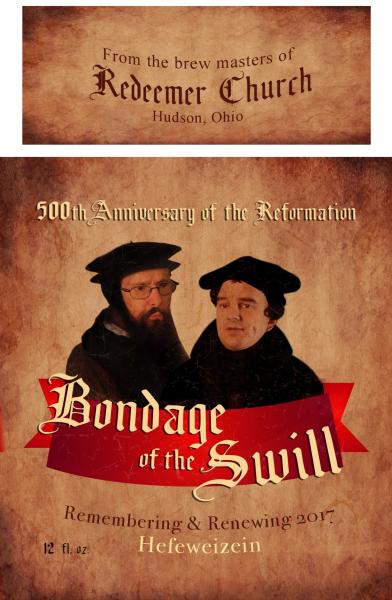Dialoging with the Doc

 For me this summer is to be one of engaging Martin Luther. Next Friday I am to be the token Schwaermer at a conference on the Word of God for Lutheran Church Missouri Synod pastors and theologians. In August I am giving the Moore Theological College Annual Lectures on ‘Reformation Preaching and the Modern Mind,’ in which I will attempt to articulate a theology of preaching by drawing extensively on the writings and insights of the Doc. Luther’s concept of the theology of the cross and of the theologian of the cross was, and remains, one of the most powerful articulations of the connection between the content of the gospel and the form of gospel ministry as set forth by Paul in 1 and 2 Corinthians. It is note the church needs to hear struck again and again.
For me this summer is to be one of engaging Martin Luther. Next Friday I am to be the token Schwaermer at a conference on the Word of God for Lutheran Church Missouri Synod pastors and theologians. In August I am giving the Moore Theological College Annual Lectures on ‘Reformation Preaching and the Modern Mind,’ in which I will attempt to articulate a theology of preaching by drawing extensively on the writings and insights of the Doc. Luther’s concept of the theology of the cross and of the theologian of the cross was, and remains, one of the most powerful articulations of the connection between the content of the gospel and the form of gospel ministry as set forth by Paul in 1 and 2 Corinthians. It is note the church needs to hear struck again and again.
Then, in the autumn Baker Academic will publish Between Wittenberg and Geneva, the fruit of the last few years of theological, historical, and ecclesiastical conversation between myself and my friend, the great scholar of the Lutheran Reformation, Bob Kolb.
This latter work has a deeply irenic character. I have made no secret over the fact that I believe confessional Lutherans are the more natural partners for ecumenical dialogue for the Reformed than are the Evangelicals. We hold a similar attitude to church, confessions, the classical doctrine of God, and justification. When Luther’s pastoral thought is studied carefully, the distance between Lutherans and Reformed on ethics is negligible and his model of ministry is exemplary. Preaching is central to both communions. Sacraments are important and, although the historic point of dispute, I find Luther’s Small Catechism on the Lord’s Supper to be an acceptable way of describing the matter. Further, we have a common belief in a connectional polity which sees true church unity as more than merely a matter of spiritual affinity between autonomous congregations. In short, we can have real ecumenical discussion with Lutherans that we cannot have with Congregationalists of whatever stripe because congregational polity rules out by definition any real churchly ecumenism. Informal friendship is all that can ever be achieved.
2017 is a significant anniversary. Hopefully it will be used by Evangelicals to re-engage with historic Reformation Christianity, including its polity and priorities. For the Reformed and the Lutherans it offers the opportunity of re-engaging in full and frank discussion of both our shared creedal heritage and our principled confessional differences. Luther has much to offer the Reformed, especially on the issue of the theology of the Word, the Cross
As a postscript, I spoke at a Reformation conference with T. David Gordon last week. To celebrate the occasion, the church brewed a special beer. But it is pointless to check your local beer store. Only 24 bottles exist, shared equally between the two men on the label…….





